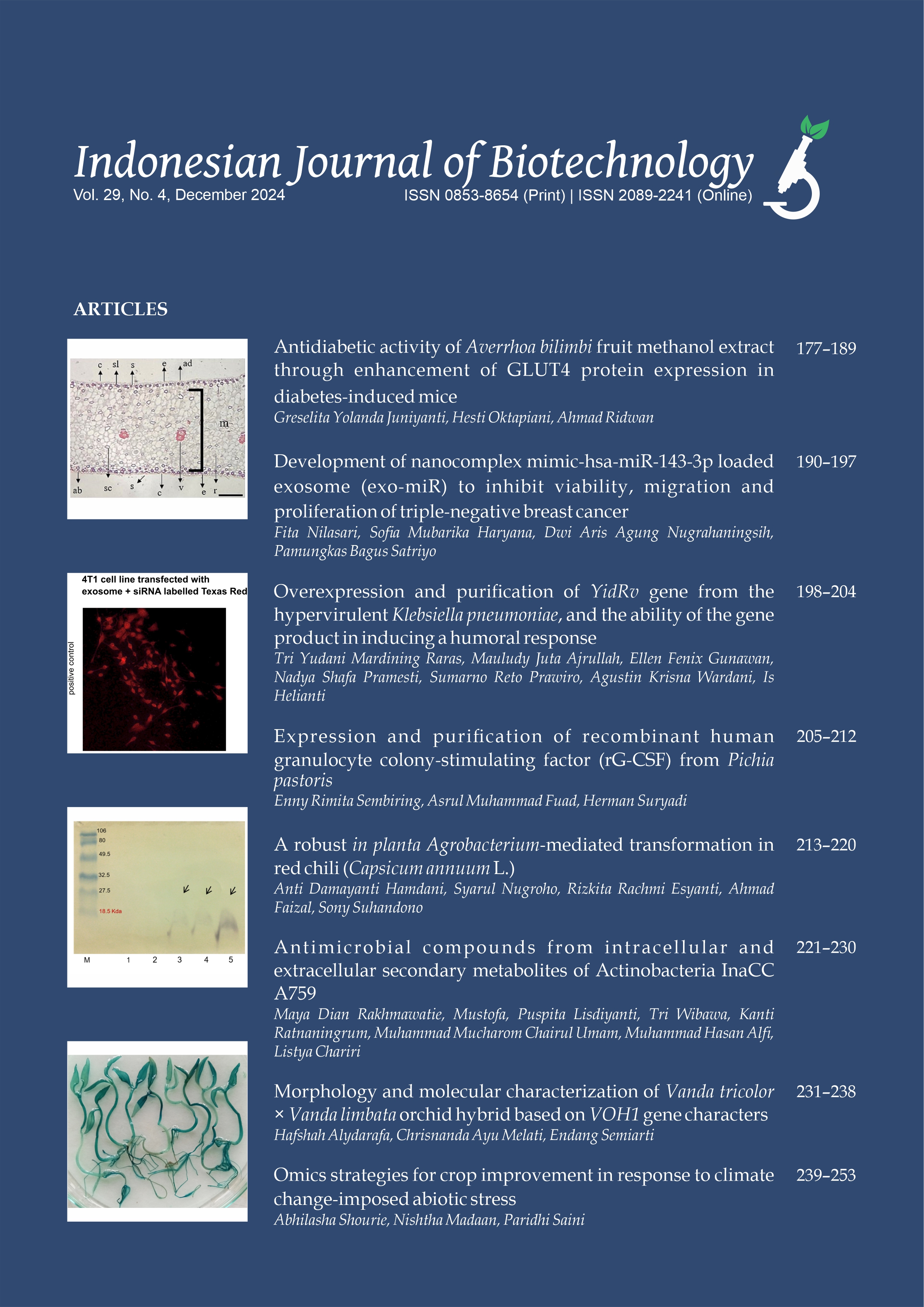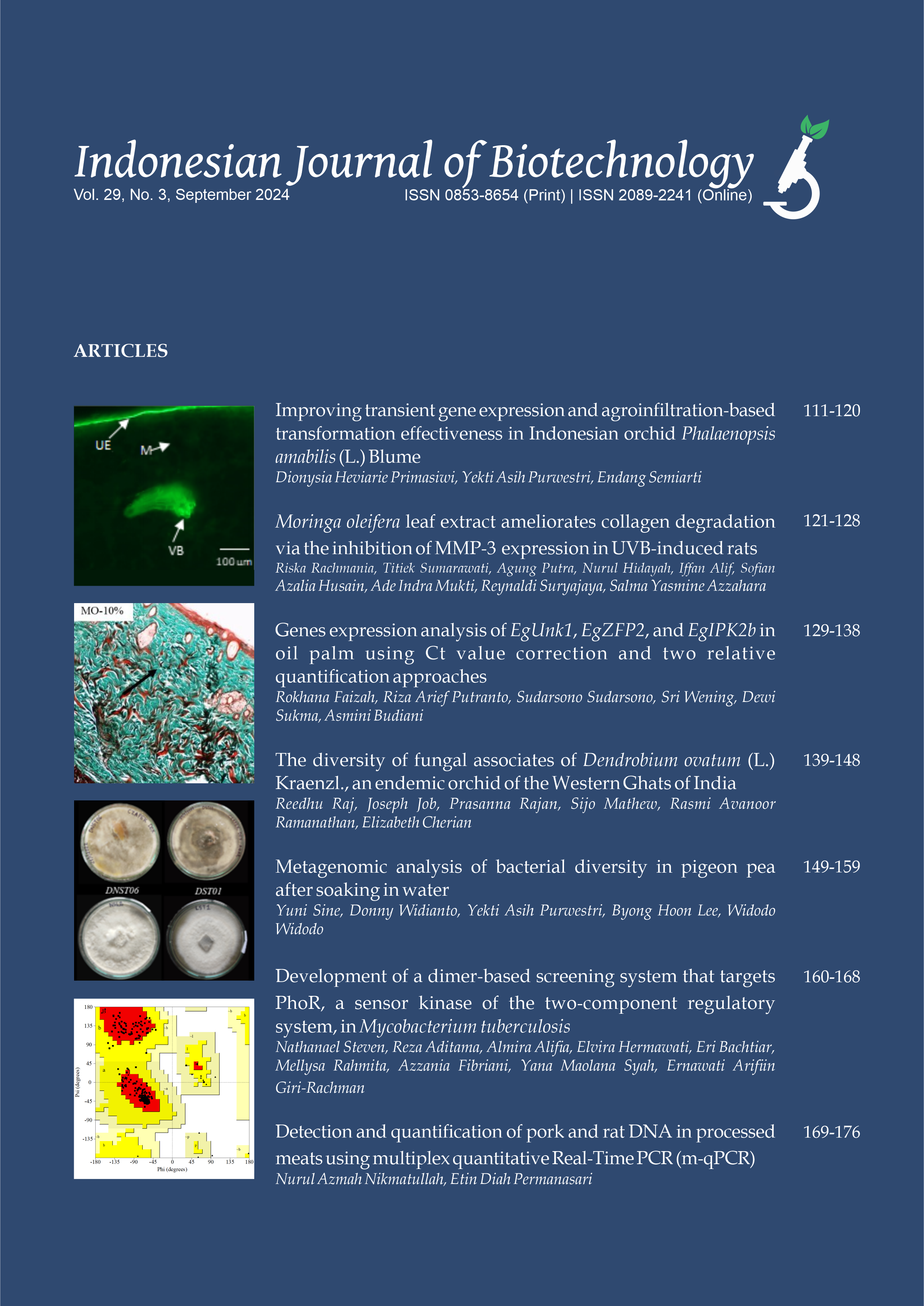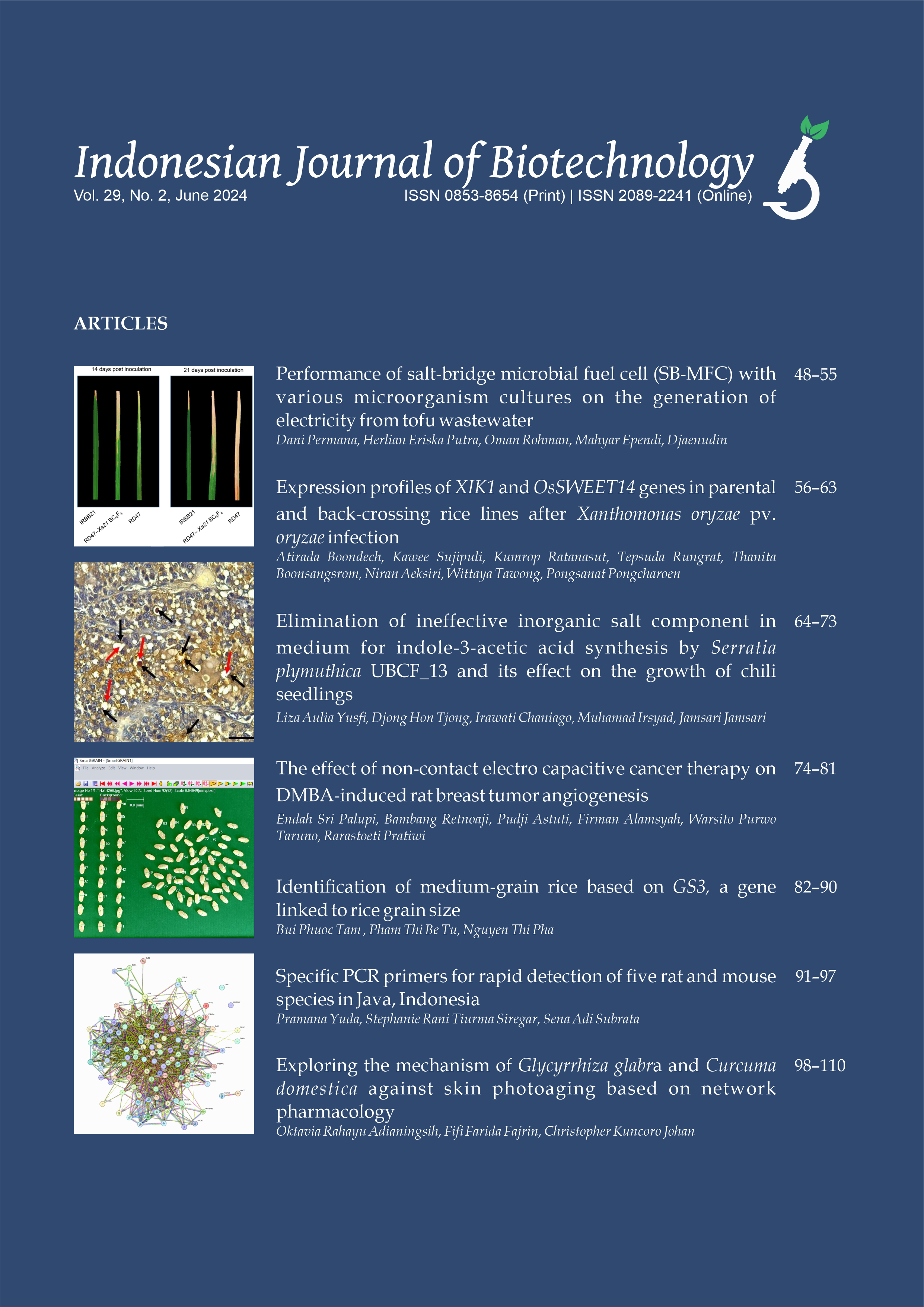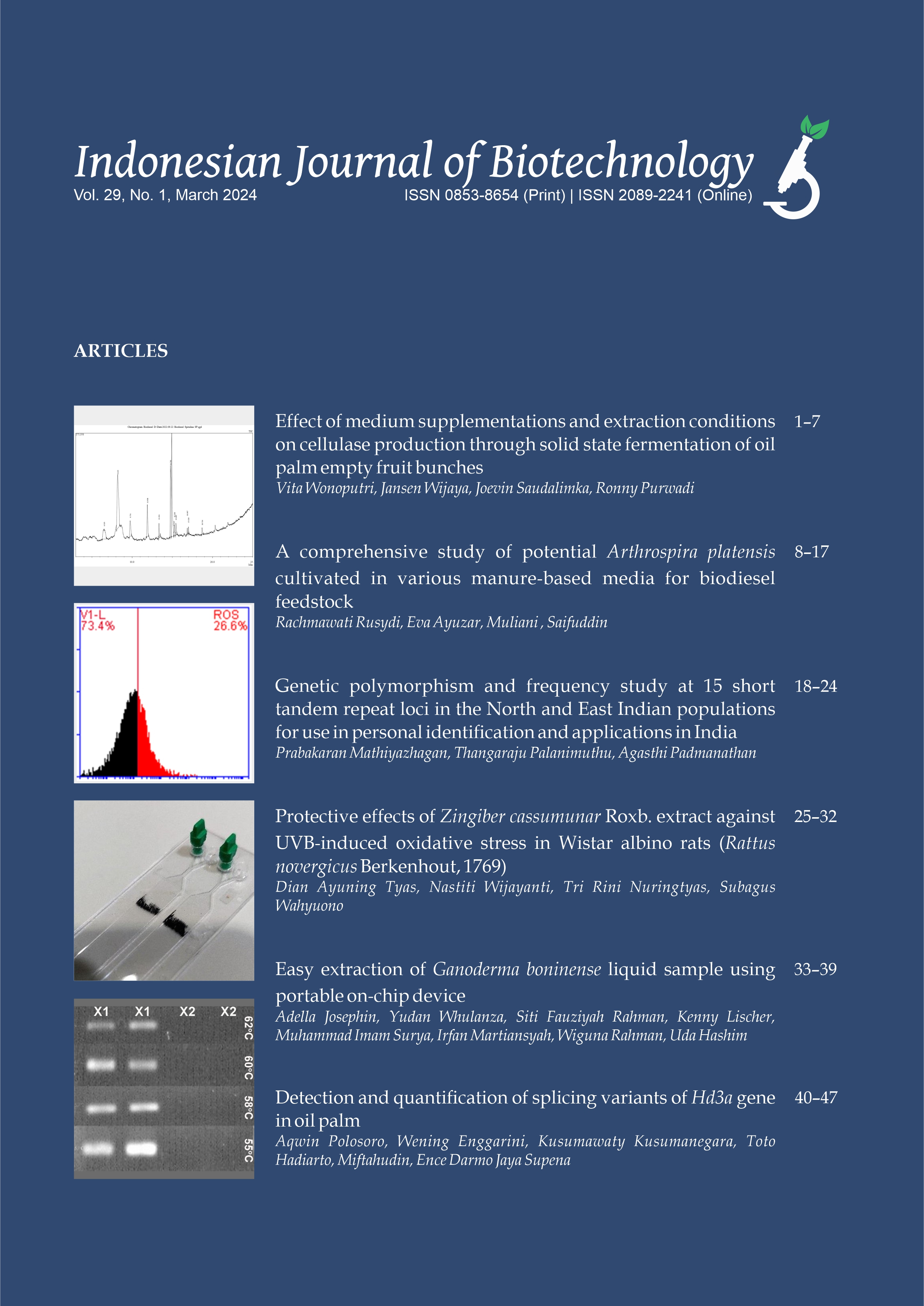Gynura procumbens Prevents Chemoresistance through Inhibition MDR1 Expression on MCF-7 Breast Cancer Cell Line and Sensitizes the Cells to Doxorubicin
Nunuk Aries Nurulita(1*), Edy Meiyanto(2), Eishou Matsuda(3), Masashi Kawaichi(4)
(1) Faculty of Pharmacy Universitas Muhammadiyah Purwokerto, Purwokerto, Indonesia Graduate Program of Pharmaceutical Science, Faculty of Pharmacy, Universitas Gadjah Mada, Yogyakarta, Indonesia
(2) Cancer Chemoprevention Research Centre, Faculty of Pharmacy, Universitas Gadjah Mada, Yogyakarta, Indonesia
(3) Laboratorium of Gene Function of Animal, Nara Institute of Science and Technology, Nara, Japan
(4) Laboratorium of Gene Function of Animal, Nara Institute of Science and Technology, Nara, Japan
(*) Corresponding Author
Abstract
The long-term exposure of doxorubicin (Dox) causes enhancement in MDR1 expression that leads to
breast cancer cell resistance. This protein become a serious problem in cancer treatment and also well-known
as negative prognostic factor in breast cancer malignancies. The new approach using natural chemopreventive
substance was developed to inhibit this resistance progress. This study was aimed to investigate whether ethyl
acetate fraction of Gynura procumnens (FEG) can prevent chemoresistance through suppressing the MDR1 protein
expression. MCF-7 cell was used as chemoresistance cell model. The MCF-7 cells were maintained with 100
nM Dox-contained medium for five weeks. The chemoprevention effect of FEG was investigated by treated
MCF-7/Dox with sub-toxic concentration of FEG. The cytotoxic properties of MCF-7 cells were determined
using MTT (3-(4,5-dimethylthiazol-2-yl)-2,5-diphenyl-2H-tetrazolium bromide) assay. Immunofluorescence
and western blotting analysis was performed to detect the MDR1 expression. MCF-7/Dox cells need higher
concentration for inhibiting cell growth, were compared with MCF-7, shown by IC50value. The MDR1 protein
level elevated after Dox exposure in time dependent manner. The FEG treatment decreased MDR-1 protein
level with dose dependent manner. FEG in combination with DOX potentiates the DOX effect on breast cancer
cell growth inhibition. The FEG prevents the chemoresistance development in breast cancer cell line, MCF-7
induced by Dox through inhibiting MDR1 expression. The additional of FEG enhances Dox effect on cell death
induction. Thus, FEG could be developed as co-chemotherapy agent for reverse multidrug resistance
breast cancer cell resistance. This protein become a serious problem in cancer treatment and also well-known
as negative prognostic factor in breast cancer malignancies. The new approach using natural chemopreventive
substance was developed to inhibit this resistance progress. This study was aimed to investigate whether ethyl
acetate fraction of Gynura procumnens (FEG) can prevent chemoresistance through suppressing the MDR1 protein
expression. MCF-7 cell was used as chemoresistance cell model. The MCF-7 cells were maintained with 100
nM Dox-contained medium for five weeks. The chemoprevention effect of FEG was investigated by treated
MCF-7/Dox with sub-toxic concentration of FEG. The cytotoxic properties of MCF-7 cells were determined
using MTT (3-(4,5-dimethylthiazol-2-yl)-2,5-diphenyl-2H-tetrazolium bromide) assay. Immunofluorescence
and western blotting analysis was performed to detect the MDR1 expression. MCF-7/Dox cells need higher
concentration for inhibiting cell growth, were compared with MCF-7, shown by IC50value. The MDR1 protein
level elevated after Dox exposure in time dependent manner. The FEG treatment decreased MDR-1 protein
level with dose dependent manner. FEG in combination with DOX potentiates the DOX effect on breast cancer
cell growth inhibition. The FEG prevents the chemoresistance development in breast cancer cell line, MCF-7
induced by Dox through inhibiting MDR1 expression. The additional of FEG enhances Dox effect on cell death
induction. Thus, FEG could be developed as co-chemotherapy agent for reverse multidrug resistance
Keywords
Gynura procumbens; Chemoresistance; MDR1; MCF-7; MCF-7/Dox
Full Text:
PDFArticle Metrics
Refbacks
- There are currently no refbacks.
Copyright (c) 2016 Nunuk Aries Nurulita, Edy Meiyanto, Eishou Matsuda, Masashi Kawaichi

This work is licensed under a Creative Commons Attribution-ShareAlike 4.0 International License.









